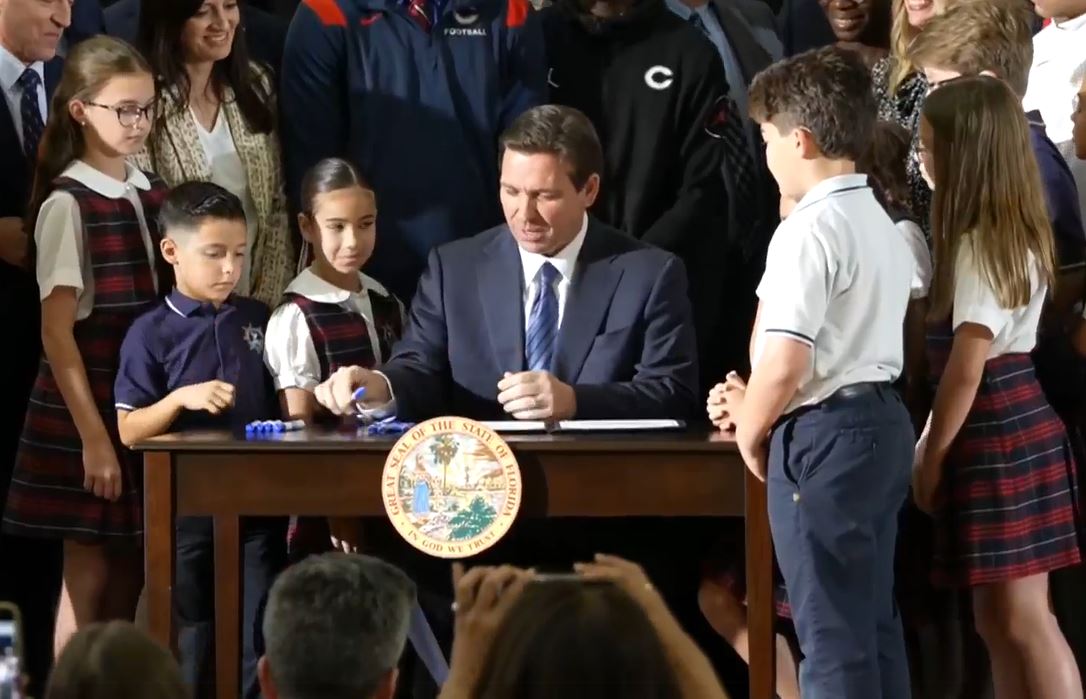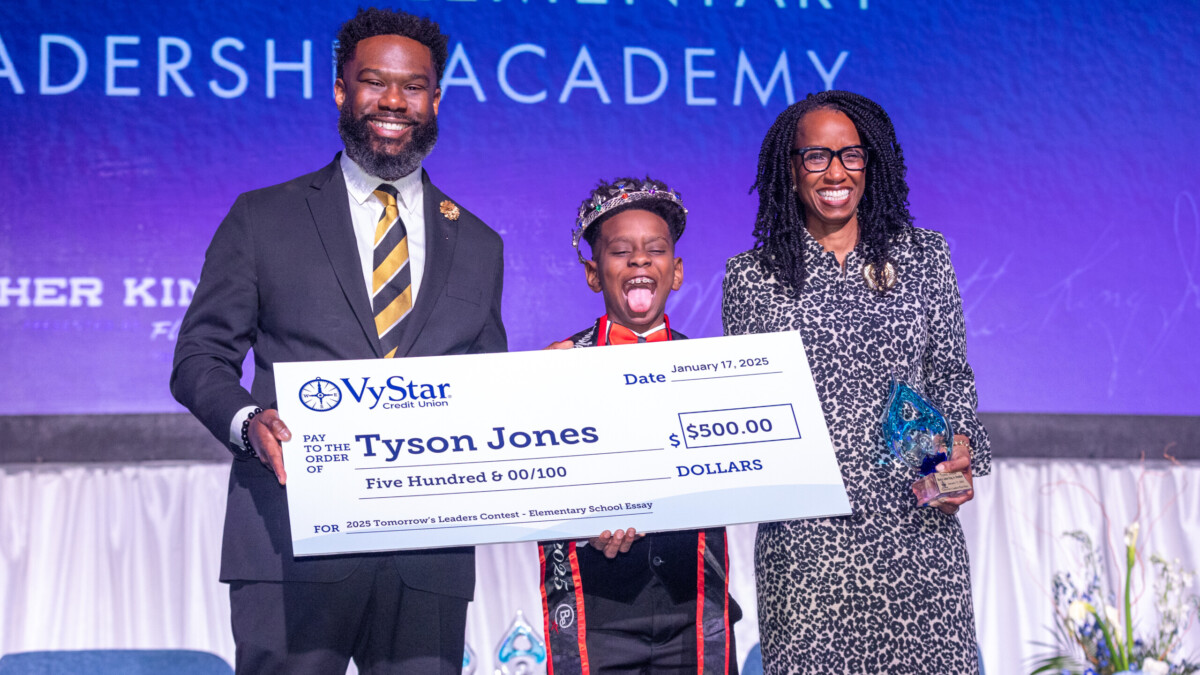Two years after the Florida Policy Institute predicted a high price tag for Florida’s universal school vouchers, the independent nonprofit’s analysts say it’s coming true.
A new report from the institute finds the vouchers will cost the state an estimated $3.9 billion in the 2024-25 school year. When the bill was signed, the institute estimated it would cost $4 billion each school year.
This cost includes both types of vouchers: the Florida Empowerment Scholarship and the Florida Tax Credit Scholarship. The 2023 law lifted income and enrollment restrictions, opening the vouchers to almost every family in Florida.
But to fund these vouchers, the state has to get the money somewhere. FPI analysts say it is coming from public schools.
Gov. Ron DeSantis recently said the voucher program gives all students access to the high-quality education they need.
“Florida is the number one state for education because of our commitment to providing every student with the option that works best for them,” DeSantis said.
This year, over 500,000 scholarships were awarded, one-third of the total vouchers given out in the country.
RELATED: DeSantis says more than 500,000 Florida students are on school vouchers
But FPI analyst Norín Dollard said people are taking unfair advantage of the program. While the vouchers were supposed to be aimed at helping low-income families get their children into private schools, students who were already enrolled in these schools were more common recipients.
“So we estimate that about 70% of voucher students would be students that have never been in public school before,” Dollard said. “So they’re already in private school, so this was just tuition assistance for them.”
In the 2021-22 school year, 12% of the state’s education budget went to private school vouchers. This school year, that amount has nearly doubled, coming in at 23%.
As a result, state funding for public schools has decreased from 88% to 77%, according to FPI.
But the majority of families are still turning to public schools, rather than private ones, Dollard pointed out.
“Florida parents overwhelmingly choose public education,” she said.
Dollard said this hurts students in neighborhoods that already have under-resourced schools. She warned that Florida is seeing the beginnings of a “resegregation” in schools now.
Damaris Allen, executive director of Families for Strong Public Schools, said the voucher program spells trouble for both public and private schools.
While vouchers siphon students and money out of public schools, they still have overhead costs that need to be covered. Meanwhile, private schools can become overwhelmed with students and unable to support them.
She also said students may not be getting a better education at a private school because many are not accredited.
“So we are going to continue to see this play out where this system isn’t good for anyone,” Allen said.
The FTC Scholarship is no longer limited to families under 185% of the federal poverty level. While priority is still given to those families, those making anywhere under 400% can receive the scholarship.
For both FES categories, the financial eligibility restrictions and enrollment requirement cap were eliminated.
As a result, Dollard said the high price tag is due, in part, to the increasing applications for the scholarships.
Dollard said the Personalized Education Program, designed for homeschoolers under the FTC scholarship category, still has a capacity limit — although that will go away by 2027.
Allen’s concern with PEP is that while parents are getting just as much money as a private school would to educate the student, they don’t have to cover the same overhead costs.
But DeSantis continues boasting about the program’s popularity, encouraging the rest of the country — particularly the Trump administration and the U.S. Congress — to take note.
“So we hope that they will consider looking at Florida’s model for education choice and applying that nationally,” he said.
You can see the Florida Policy Institute report here.






